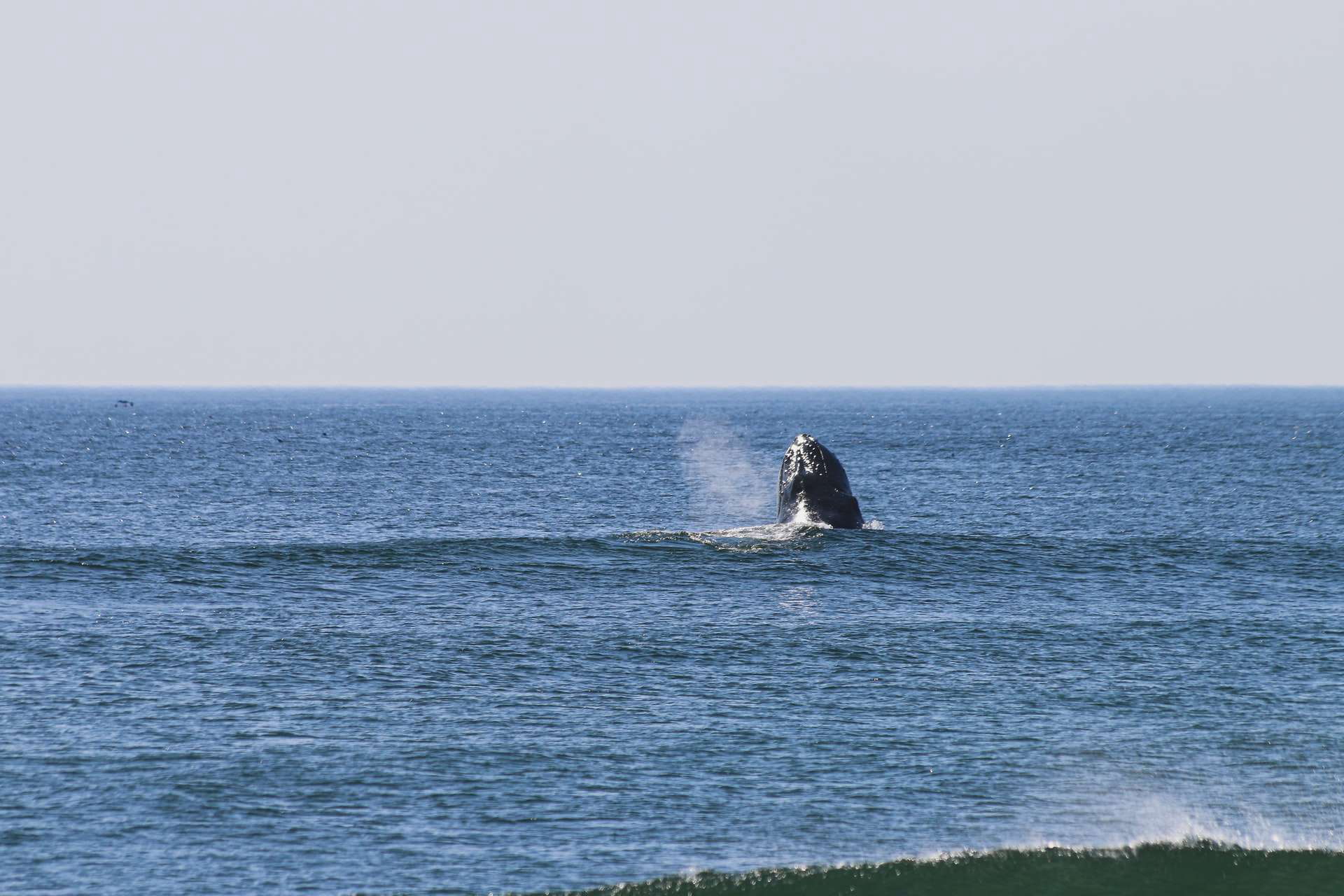
The depth of our oceans hides a unique living world that we have barely just started to understand. Adored with underwater mountains, old coral reefs, weird sea creatures that have lived for centuries, the oceans are the place of mystery, it even gives us clues that how less we know about the place where we live. These oceans are vast, so much so that barely 5% of the Earth's oceans have been explored and charted by the humans. Presently, a new population of blue whales, which are the largest creatures to have ever lived on Earth, has been found in the western Indian Ocean for the first time.
What sets these new giants apart is that they sing in a unique tune. According to a research published in the Endangered Species Research, the song of these whales is previously undocumented, indicating that the recently discovered blue whale population might be unique from the 2-3 known subspecies of blue whales of the Indian Ocean. Each population of blue whales sing a unique song. The new type of blue whale songs was recorded off Oman in the North Indian Ocean or the Arabian Sea, off the Western Archipelago in the editorial central Indian Ocean, and at Madagascar in the Southwestern Indian Ocean. According to the National Oceanic and Atmospheric Administration (NOAA), these newly found blue whales weigh over 3,30,000 pounds and grow up to 110 feet long. The same type of blue whale song was recorded from 3 spots around the Indian Ocean, each one separated by thousands of miles, and enabled the researchers to chart a map of the blue whales' exact locations, and go deeper into the history of the population of blue whales. Director of the African Aquatic Conservation Fund's Cetacean Program and visiting scientist at the New England Aquarium, Dr. Salvatore Cerchio led the examination of the recordings that directed this discovery.
The researchers speculate that these are all blue whales, but with different styles. They discovered this new population of blue whales by accident when they overheard their songs. This unique song type implies the possibility of the existence of a whale population that has been undetected by humans. While researchers were documenting the rare Omura Whales in 2017, Dr. Salvatore Cerchio initially recorded the new song in the Mozambique Channel off Madagascar, and then again while studying a set of recordings collected off the coast of Oman. Their team reported their findings to the International Whaling Commission (IWC) in 2018, which was then aiming to examine the condition of blue whales in the Indian Ocean. The same results were validated by another team led by Emmanuelle Leroy and Tracey Rogers of the University of New South Wales, Sydney, Australia. Upon reading the IWC report on the new song, Leroy recognised that they had recorded the same song at the Chagos Archipelago. Being the only whale song to have been heard in the western Arabian Sea, researchers have dubbed it the ‘Northwest Indian Ocean’ song-type to compare it to other regional song-types.
The timing of the blue whale population's presence off Oman indicates that the new whales might have been survivors of serious historic whaling. The illegal Soviet Union whaling that took 1,294 blue whales in 1960 is likely to have targeted this population. Based on the Soviet Union's data, the researchers explain that if there is a northern Indian Ocean subspecies, it is likely this population which was attacked by the Soviet Union. The finding of the lately undiscovered, odd song-type, and even largest beast on Earth could be so easily unnoticed has assured the researchers that the population of this distinct blue whale is relatively less and thus it is in vital demand of inspection and preservation.
With the help of multiple organizations around the world, the overall population of blue whales have started to recover. And the 1986 IWC ban on commercial whaling also helped to decrease the extinction of these giants. According to Forbes, the blue whale population dropped around from 3,50,000 at the turn of the 20th Century to between 10,000 to 25,000 currently. These huge numbers reveal the depth of the conditions, and which is why the species of blue whales are crucially endangered. According to the New England Aquarium (NEAQ), each discovery connected to blue whales serves as a carrier of hopes for the species' sustained recovery after having been hunted to near extinction across the globe in the 20th century. And these discoveries will bring some possibilities of blue whales once again flourishing in large amounts in the vast oceans.
___________________________________
Reference -
- www.ecowatch.com
- www.doaj.org
- www.neaq.org
- www.iwc.int
